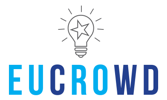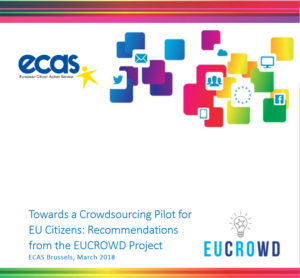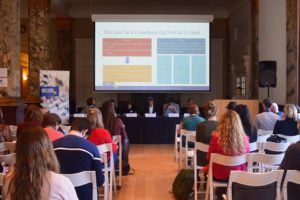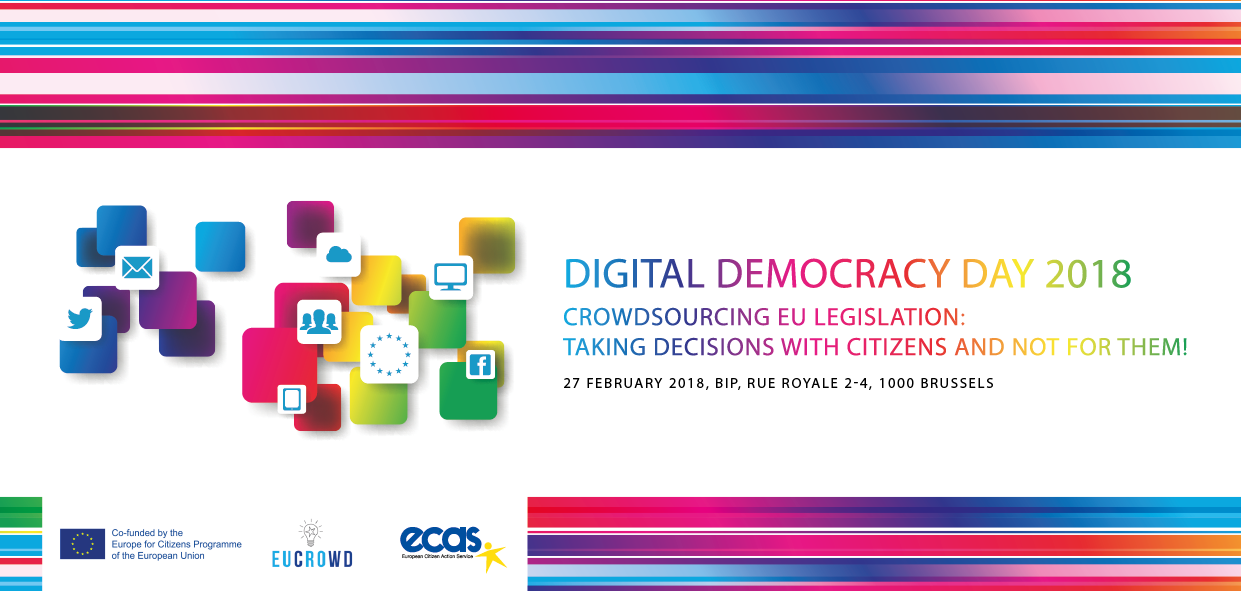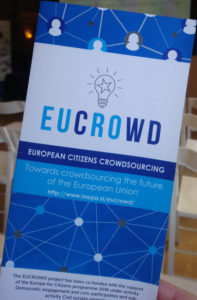
The brochure (available here in pdf) highlights the following main results and outputs of the EUCROWD project:
– EU citizens’ expectations on crowdsourcing in politics and policy-making with focus on debating the Future of Europe;
– Recommended issues and policy-cycle phases that could be crowdsourced at European level in relation to the Future of the EU;
– Open access on-line repository of 100+ resources on crowdsourcing as an e-participation method and as a means of fostering European citizenship;
– A list of crowdsourcing good cases and platforms that could be used for improving citizens engagement at the EU level;
The brochure also calls to action for individuals and organisations interested in e-participation of citizens in politics and policy with a focus on the application of crowdsourcing in fostering a democratic debate on the future of the European Union.
